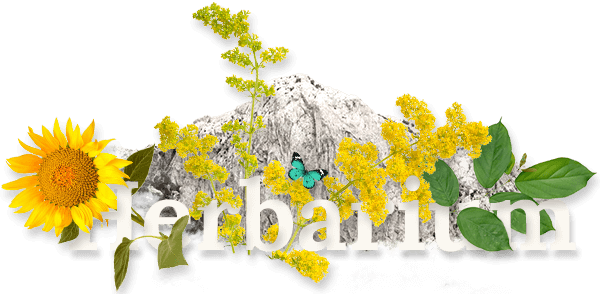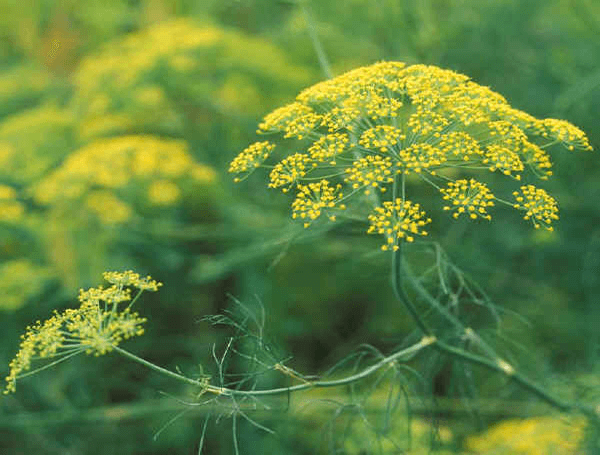Izradu internetske stranice sufinancirala je Europska unija u okviru operativnog programa Konkurentnost i kohezija iz Europskog fonda za regionalni razvoj.
saznajte više
Habitat:
Fennel is circumpolar (that is, can be found all over the globe). It is most often found in dry stony calcareous soils near the sea. It is generally considered native to the Mediterranean region but today it is cultivated throughout the British Isles, China, Dominican Republic, Ethiopia, Haiti, Iraq, Italy, Japan, Kurdistan, Malaya, Mexico, Spain, Turkey, and Venezuela.
Plant Description:
Fennel is a perennial herb that grows to a height of about 2.5 m. It has hollow stems, feathery leaves, and flowers that grow in terminal compound umbels about 5-15 cm wide. Each umbel has 20-50 tiny yellow flowers on short pedicels. The leaves are finely dissected, growing up to 40 cm long; the appearance of the leaves is similar to dill leaves but thinner. The fruit, which is the part most often used in herbal medicine, is a dry seed measuring 4-10 mm long, twice as long as it is wide, with distinct grooves.
Plant Parts Used:
Primarily the seeds and an essential oil extracted from them; leaves and root are also used. The fresh leaves, mostly used as a seasoning and garnish, are not suitable for drying but can be preserved by freezing. The essential oil is colorless or pale yellow and has a sweet, spicy fragrance reminiscent of anise. The oil is extracted by steam distillation of the crushed seeds. The health properties of fennel are warming, carminative, antispasmodic, antidepressant, stomachic, pectoral, diuretic, diaphoretic, aromatic, anti-microbial, pain reducing, fever reducing, and promotes milk-flow in nursing mothers. Fennel has a long history as a commonly used household remedy for a variety of complaints, especially digestive disorders and it has been used traditionally as a remedy for gas, acid stomach, irritable bowel syndrome (IBS), gout, motion sickness, cramps, and spasms. Fennel has a diuretic effect, which increases the amount and frequency of urination, which is thought to help remove toxic substances from the body. Fennel is thought to be an effective herbal remedy for respiratory congestion and is a common ingredient in cough remedies. It relaxes the smooth muscle lining of the digestive system and is used for cancer patients after radiation and chemotherapy treatments to help rebuild the digestive system. Fennel is used as a natural treatment for anemia. Fennel contains iron and histidine, an amino acid found in fennel. Histidine stimulates the production of hemoglobin and other components of the blood.
Fennel is used as an herbal treatment for diarrhea caused by bacterial action; it is believed that the properties of some components of it are disinfectant and anti-bacterial. Histadine is an example of one of the several amino acids in fennel that aid digestion, helping to relieve diarrhea due to indigestion. The tea is believed to increase milk production in nursing mothers, and may also relieve colic in babies. An infusion of the bruised seeds is a safe and effective natural treatment for flatulence in babies. When used with urinary disinfectant herbs like arctostaphylos uva-ursi, the herb is thought to be an effective herbal treatment for cystitis.
Cautions:
Please be aware that herbs, although natural can interact with certain medications, and that they may be ill advised to use under certain health conditions. Please consult a qualified health practitioner for cautions pertinent to you.
No therapeutic claim is made or intended for AZENA products. Information is for educational purposes only.





